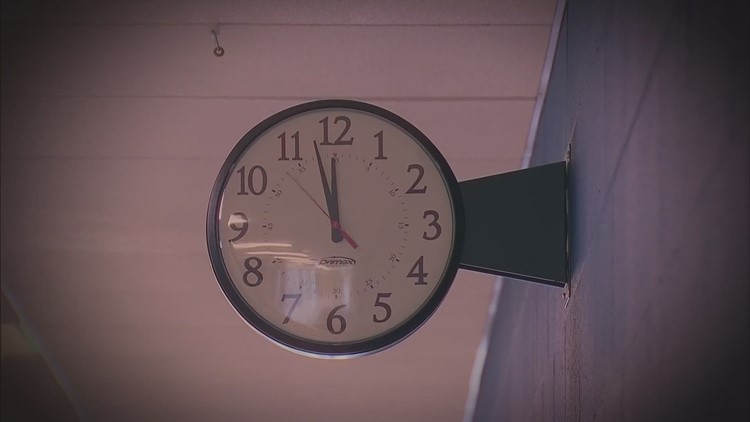WASHINGTON, USA — Many Americans loathe the biannual need to change their clocks as a result of Daylight Saving Time (DST). A state legislator in Washington hopes to change that by introducing a bill in the next session that would make standard time permanent year-round.
State Sen. Mike Padden, who represents Spokane Valley, plans to introduce the bill when the next legislative session begins in January 2024.
“If there is one issue most people agree on, it’s the dislike of moving their clocks from standard time to daylight saving time in the spring and then back to standard time in the fall,” Padden said.
In 2019, Padden was one of the many state legislators who voted for and passed a bill that would make Daylight Saving Time permanent in Washington state. However, Washingtonians still have to observe the time change twice a year unless Congress votes to allow the move or the Secretary of Transportation authorizes the change. Both are unlikely to happen.
The Uniform Time Act, passed by Congress in 1966, allows states to opt out of daylight saving time, which Hawaii and most of Arizona, with the exception of the Navajo Nation, have done. However, doing the opposite of opting out of standard time and staying in daylight saving time is not allowed under federal law.
Therefore, Padden hopes by passing a bill making standard time permanent, residents of the state will no longer need to change their clocks twice a year.
Padden is working together with Oregon state legislator Sen. Kim Thatcher, who will introduce a similar bill for her state in 2024.
“It confuses and annoys many people, and it causes health problems for some," Padden said in the release. "That’s why Senator Thatcher and I are working together to see if our respective legislatures can keep our clocks on standard time year-round."
The U.S. Senate unanimously passed the “Sunshine Protection Act” in March 2022, but the House has not taken up the issue. Sen. Marco Rubio (R-Fla.) and Rep. Vern Buchanan (R-Fla.) frequently reintroduce the bill in their respective chambers, but the bill usually dies before it comes close to becoming law. The Senate and House versions of the Sunshine Protection Act of 2023, which were both introduced in March, failed.
Why was daylight saving time created?
The practice has been implemented in some form since World War I when Germany originally introduced it to conserve power and energy by extending daylight hours.
The Standard Time Act in 1918 was the first introduction of daylight saving time to American clocks. The temporary measure, which once held the nickname "wartime," lasted from spring to fall and was intended to cut energy costs during World War I. The act is also responsible for the five time zones still in place today.
The Department of Transportation was created and given regulatory power over time zones and daylight saving time in 1966. In order to correct confusing and alternating time zones, the Uniform Time Act of 1966 sought a nationwide standard for daylight saving time from the last Sunday in April to the last Sunday in October.
Few changes have happened since then. Most recently, daylight saving time was extended by a few weeks in 2005 when former President George Bush changed the law. It is now observed from the second Sunday in March until the first Sunday in November.
Despite the national observance, Arizona and Hawaii do not observe daylight saving time. Under federal law, states are allowed to opt out of daylight saving time and remain on standard time but are not allowed to remain on daylight time.
The U.S. has previously implemented daylight saving time year-round twice, once in World War II for fuel conservation and once in 1974 as a "trial run" during an energy crisis.
While there is some belief that daylight saving time reduces electricity consumption, traffic and crime, two studies, one performed in 1975 and one in 2005, when DST was extended, revealed that much of the changes in energy consumption, traffic and crime were "statistically insignificant." The 2005 study found that each day of extended daylight saving time lowered total national electricity consumption by 0.5%.



